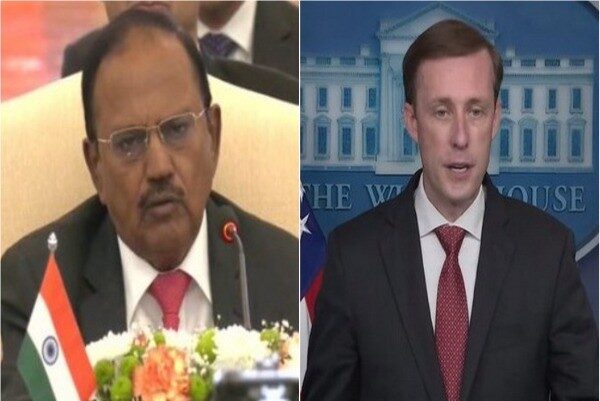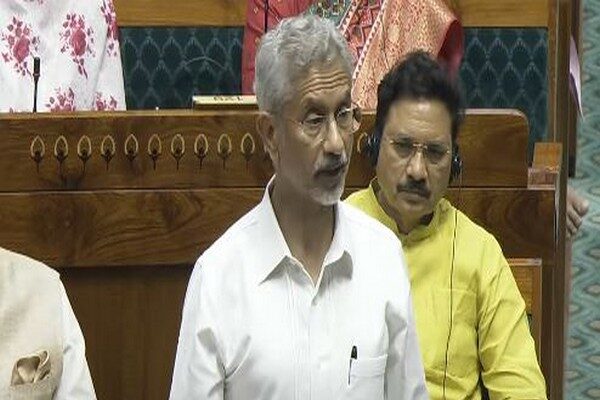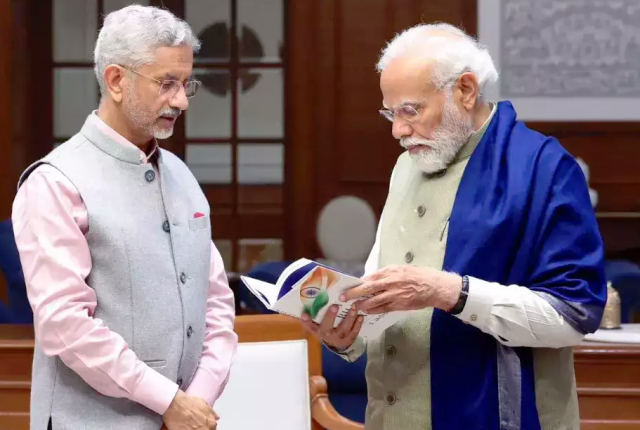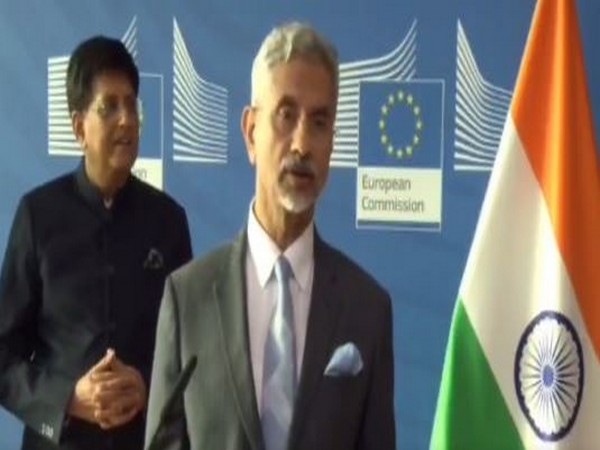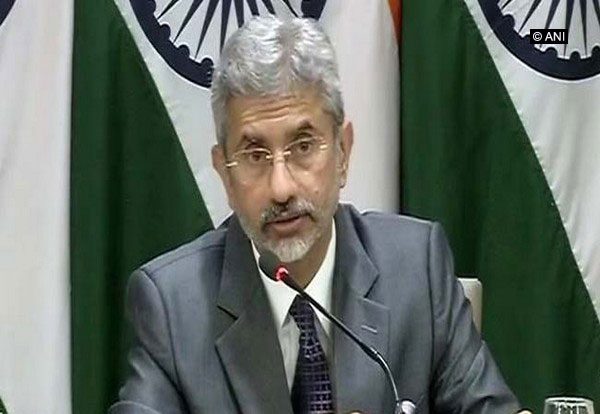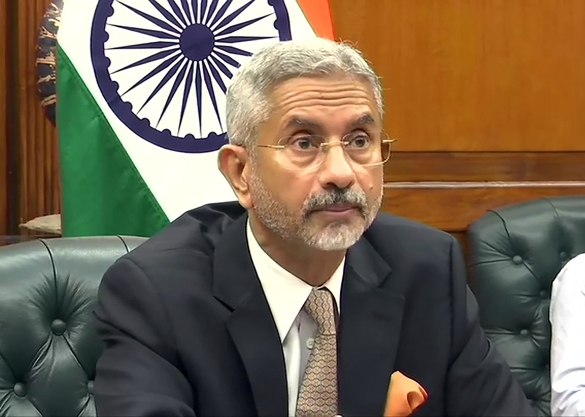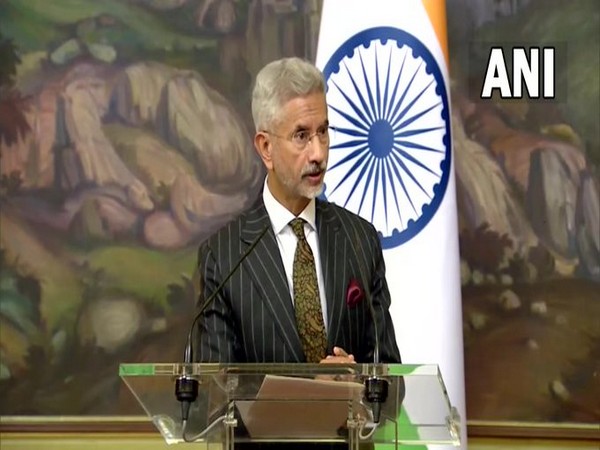Just two things from last weekend can give you a huge insight into the manner in which India’s foreign policy has undergone a significant transformation under the leadership of Prime Minister Narendra Modi, who completes 10 years at the helm of India’s government and is poised to win another five-year term. But first the two things (spoiler: both have to do with S. Jaishankar, Modi’s foreign minister and close confidant when it comes to anything to do with India’s international policy).
One. Last Friday, at an event to launch the Marathi version of his book, Jaishankar said: “Whosoever will be the President of America will have good relations with India, because America will always want to have a partnership with Prime Minister Modi.”
Two. At the same event, in an obvious reference to cross-border terrorism from Pakistan, he also said: “They (terrorists) should not think; we are this side of the line, so no one could attack us. Terrorists do not play by any rules. The answer to terrorists cannot have any rules.”
Both those statements by India’s foreign minister are accurate. I would amend the first a bit by substituting “partnership with Prime Minister Modi” with “partnership with India” but then we should not mind Jaishankar’s preference for mentioning the name of his boss.
Indo-US relations and the China factor
Let’s start with the first statement. India’s relationship with the US has pivoted in the past couple of decades and has been warming for several reasons but for the US, the most important of them is the dynamics of China’s rise and its implications for regional stability. US-China relations have been deteriorating ever since the US started worrying about China’s military buildup and its assertiveness in the South China Sea. Then, in 2018, a trade war began under the Trump administration with both countries imposing tariffs on each other’s goods. In 2020, the tension escalated over the handling and origins of the COVID-19 pandemic and issues such as the handling of Hong Kong and the treatment of Uighurs in Xinjiang.
Strategically, the US supports India’s emergence as a leading global power in the region and sees it as a counterbalance to China’s rise. This strategic interest, coupled with economic interests and shared democratic values, has contributed to the strengthening of the US-India relations.
The two countries now cooperate in areas such as defence, trade, technology, and climate change. So, to paraphrase Jaishankar, no matter who becomes the next occupant of the White House, the US will always want to have India as a partner, no matter what. When Canada accused India of being involved in the murder of a Sikh separatist on Canadian soil, the US was remarkably guarded in its response, simply because it needs India strategically.
For India, it is a win-win. It follows a policy of strategic autonomy and has avoided becoming a formal ally of the US, which allows it to follow an independent foreign policy that can also sometimes diverge from what the US would ideally expect. Case in point: India’s relations with Russia.
Indo-Russian relations and the economic factor
While the US-led West has imposed heavy sanctions on trade with Russia following its invasion of Ukraine, India has maintained its historical bond with Russia. India buys Russian oil, weapons and trade between the two continues to be robust. In the financial year 2024, India bought 35% of its oil imports from Russia. India and China together buy an estimated 80% of Russia’s oil. In 2023, India spent $15.2 billion on Russian oil. For Russia, embroiled as it is in a war in Ukraine since February 2022, such revenue is of critical importance.
Arguably, those earnings could be financing Russian President Vladimir Putin’s onslaught against Ukraine but for India, it is a win-win. Because India has been buying Russian oil at discounted rates. Following the sanctions imposed on Russia, Russian Urals crude has been selling at a discount. For instance, at one point, it was more than $30 a barrel cheaper than Brent crude, the global benchmark.
Indo-Chinese relations and the tension factor
If India’s relations with the US and with Russia can be said to be determined by strategy and economics, respectively, its relations with China are much more complex. It is marked by both cooperation and contention. Continuing border disputes with China have strained ties between the two countries.
The border disputes over areas in the north-eastern part of India are long-standing. Recently, Prime Minister Modi highlighted the “urgent need to address” the prolonged situation on the borders to resolve the “abnormality in bilateral interactions”. There have been ongoing diplomatic efforts to ease the tensions, but there has been no breakthroughs.
A new controversy has been over China renaming territories by issuing standardised names in Mandarin for places within India’s Arunachal Pradesh, which China refers to as Zangnan. India has strongly condemned this move, with the Indian defence minister questioning the logic behind the renaming and asserting that such actions cannot change the fact that Arunachal Pradesh is an integral part of India. The U.S. has also reacted to this development.
These actions by China are seen as attempts to assert its territorial claims over the region, which India rejects. The renaming of territories is part of a broader pattern of assertiveness by China in its border disputes, but India maintains its stance that Arunachal Pradesh is, and will always be, an integral part of its territory. The situation remains sensitive.
India also fears security threats from China. In 2020, it banned 59 Chinese-made apps, including popular ones like TikTok and WeChat, citing them as a danger to the country’s sovereignty, integrity, and national security.
Yet, Indo-Chinese relations aren’t that simple. Despite the border tensions, trade between India and China has not only continued but has reached new heights. In 2022, the trade volume between the two countries was at an all-time high of $135.98 billion, with India’s trade deficit with China crossing the $100 billion mark for the first time. This was despite India’s efforts to become more self-reliant and reduce its dependence on Chinese imports. However, imports from China have remained strong mainly because they are cheap.
Indo-Pak relations and the big daddy factor
I began this piece by listing two recent statements by India’s foreign minister but tackled only the first. The second too is of significance. When Jaishankar said the “answer to terrorism cannot have rules”, he could have likely been referring to a report in The Guardian, which alleged that India’s external intelligence agency, Research and Analysis Wing (R&AW), conducted operations deep inside Pakistan to neutralise wanted terrorists. That statement reflects the tough stance that India now adopts when it comes to cross-border terrorism from Pakistan, particularly in Kashmir.
Elsewhere, in its South Asian neighborhood, India under Modi has tried to reassert its leadership role. Its ‘Neighbourhood First’ policy aims to foster better relations, but challenges persist. India’s influence faces competition from China’s economic clout, as Beijing invests heavily in regional infrastructure projects.
Modi’s global ambitions are also reflected in India’s outreach to Africa and the Middle East. In Africa, India has focused on development partnerships and trade, positioning itself as an alternative to China’s resource-driven approach. In the Middle East, energy security and the welfare of the Indian diaspora (66% of non-resident Indians live in the Middle East) have guided its policies, leading to stronger ties with nations like Saudi Arabia and the UAE.
As Modi likely heads into a third term, what kind of foreign policy should we expect? For sure, the policy of “strategic autonomy” that has now become familiar will continue with India navigating the complex geopolitical web of the world by blending pragmatism with national interest. That strategy will also gain heft from India’s economic might–it could soon become the third largest economy in the world. To sum up, it would be: Modi’s win-win foreign policy.
For more details visit us: https://lokmarg.com/
